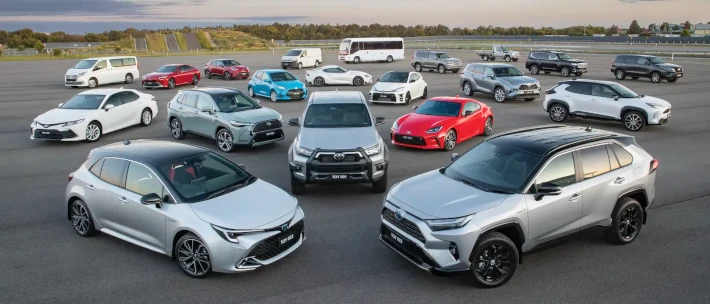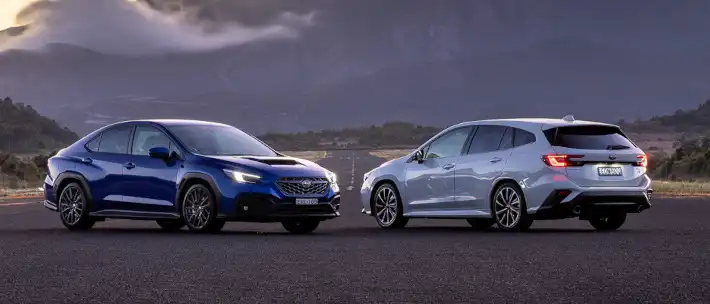It's an exciting time for electric vehicles, with the technology very much in the mainstream and prices reaching an accessible point for a wide range of battery-electric hatchbacks, SUVs, sedans, people movers and even sports cars.
With any new technology, though, there are a lot of new concepts and features to get an understanding of when it comes to electric vehicles. You'll also have to contend with a choice of different battery sizes, fast-charging tech, model grades, efficiency ratings and more.
The result is an exciting prospect, but one that can be overwhelming when you're looking to make the plunge and purchase a new electric car.
To help you out, we've compiled a tonne of information to help you with the initial steps and a breakdown of the most important aspects of electric vehicles.
The Complete Guide to Buying an Electric Car
Let's dive right into it with a quick overview of the process and requisite learning and research.
Alternatively, you can reach out to one of our electric car-buying specialists who is well-versed in the segment and can even help find you the best possible price.
Arguably, the first step of the process is to check for any state and/or territory subsidies that might take some of the sting out of the initial purchase price.
These vary between states and territories, though on the Federal level, you stand to benefit from a higher Luxury Car Tax threshold for fuel-efficient and electric vehicles.
You should also consider the viability of a novated lease which allows you to reduce your taxable income. For more information, we've got you covered with a guide to the pros and cons of both novated leasing and a more traditional car loan.
With the numbers out of the way, it's time to get onto the exciting stuff - picking an electric vehicle segment and size. These days, there's a wide range of EVs across multiple segments, including city-friendly hatchbacks, compact, mid-size and large SUVs, executive saloons and even high-performance sports cars.
Once you've picked a segment, you can now whittle down your options and compile a shortlist of options, for example, a list of your favourite-looking and most appropriate battery-electric midsize SUVs.
If you're short on time or inspiration, we've put together numerous lists of the best electric vehicles for certain purposes and price points, including electric cars under $50k, the best electric sedans, the best EV vans, and the best-selling electric cars, the latter of which adds a nice bit of social proof for your research.
Get in touch with one of our Car Buying Specialists today.
Request a quoteBuying the Right Electric Vehicle Checklist
Now that you've got a shortlist of your favourite vehicles, it's time to get into the nitty-gritty of the decision-making process with the help of our electric vehicle buying checklist.
Let's assume that you're looking for an electric midsize SUV and there are anywhere between 3 - 5 vehicles on your radar. This is where you'll want to grab the microscope and look closely at the following things:
-
Price: Obviously, price is the major concern when buying any vehicle, especially EVs which are often priced at a premium over an internal combustion-powered equivalent. Compare list prices for your favourites and use this in combination with all of the checklist items below to find a happy medium that you can afford, but can over-deliver for your needs.
-
Battery Size: Arguably the most important factor when comparing electric vehicles is the size of the battery pack, which translates to how far you'll be able to drive per charge but also accounts for a major part of the purchase price. A larger battery is a great way to alleviate range anxiety but can also add considerably to the price.
-
Energy Efficiency: While the size of the battery is vital, it's also important to compare the energy efficiency rating of that vehicle's electric motor. In Australia, energy efficiency is mapped out in a kilowatt-per-100km rating (kW/100km) where the lowest possible kW is preferable.
-
Range: EVs have come a long way when it comes to driving ranges, with manufacturers well aware that range anxiety is one of the biggest concerns for buyers. Nowadays, electric cars offer anywhere between 250 - 600km of range per charge, far surpassing the average 38km that Aussies commute each day. For the most accurate range ratings, look for WLTP test cycle figures over NEDC figures and keep in mind that real-world range figures are often less than advertised.
-
How Much Highway Driving: As a sidenote for EV range figures, electric vehicles are most efficient around town and least efficient while driving on the highway, so if you're planning on tackling long stints on the highway, upgrading to a different model or alternative vehicle with a larger pack will prove a great investment.
-
Fast Charging Speeds: Not all electric vehicles can charge at the same speed, even while using the same fast charger. This means it's imperative to check DC fast-charging speeds across your preferred vehicles which, conveniently, we've compiled for you here with a look at the fastest-charging EVs in Australia.
-
Model Variants: Like most vehicles, when a car is released it's split into different model variants. This is designed to give buyers an affordable entry point into the range, while more luxurious touches and, in some cases, larger battery packs or additional motors are included to sweeten the added premium you're paying. It's essential when buying an electric car to do the math and assess the viability of an entry-level model that could save you thousands.
-
Size & Practicality: While not specific to electric vehicle technology, it remains vital to check the EV you're interested in will indeed fit your needs for space and practicality. Thankfully, EVs are often more practical than their ICE equivalents, often touting additional legroom in the rear or even an added front boot (or 'froot'), but this isn't the case for every model - so do your homework.
-
Warranty: Long warranty coverage is the aim of the game here, with some manufacturers offering far superior warranty programs, including coverage for the high-capacity battery than competitors. Luckily for you, we've compiled a list of battery warranties for every EV manufacturer in Australia which are accurate as of late 2024.
-
Charging Subscriptions: To help entice you into the family, some manufacturers offer their new electric vehicles with a one, three or even five-year subscription to a charging network which can save you considerable cash over time.
-
Home Charging Offers: In a similar vein, some EV makers even offer a heavily-reduced or complimentary installation of an AC charging wall box at your home which is a great way to avoid paying more for access to a public DC charging station.
-
Capped-Price Servicing: Electric vehicles are typically more affordable to maintain than petrol and diesel-powered rivals which is a great thing, made even better if your preferred manufacturer offers capped-price servicing which allows you to more confidently budget for your ownership costs down the line.
-
Service Intervals: While EVs are less mechanically complex than ICE vehicles, they still require regular maintenance to keep everything in check. Service intervals for EVs range from anywhere between 12 - 24 months or 10 - 30,000 kilometres.
-
Technology: Electric vehicles often receive the latest interior technology that a manufacturer has up its sleeve to impress buyers and showcase its next-generation vehicles. Some manufacturers have a much more modern technology offering inside their EVs, so be sure to compare your favourites and make a list of which features you're not willing to go without.
-
Safety Tech & ANCAP Ratings: EVs can also benefit from a bespoke, ground-up platform that performs well under the latest ANCAP safety test protocols, while the latest active tech means you should benefit from the full raft of features as standard, without paying extra for a more premium model grade.
Wrapping Up: Buying an Electric Car in Australia
As we've discovered, there's a lot to the electric vehicle purchasing process, but when you break things down, it's a surmountable task with the potential to net you some savings in the process.
That aside, the fundamentals of picking a car remain unchanged: find something that meets your needs and fits within your budget and always compare model grades to see if there's a more affordable option.
More specifically for EVs, upgrading to a larger battery is a great way to reduce range anxiety, though it can add massively to the purchase price, so toss this up alongside energy efficiency and things like fast charging that might help to make a lesser model more viable for your needs.
Request a Quote
If you're looking for a simple, streamlined way to get into your dream car, reach out to one of our car-buying specialists who can take the stress out of the process and find the best possible price.
Get in touch with one of our Car Buying Specialists today.
Request a quote







